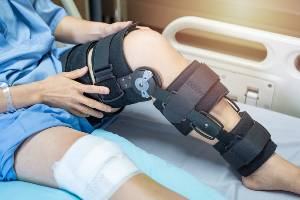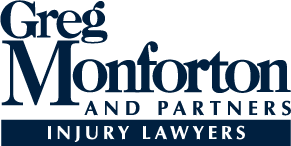 Orthopedic injuries are injuries to your musculoskeletal system, including injuries to your joints and bones. For example, a broken hip, fractured collarbone, torn anterior cruciate ligament, torn meniscus, and a torn rotator cuff are all examples of orthopedic injuries.
Orthopedic injuries are injuries to your musculoskeletal system, including injuries to your joints and bones. For example, a broken hip, fractured collarbone, torn anterior cruciate ligament, torn meniscus, and a torn rotator cuff are all examples of orthopedic injuries.
The trauma from a car accident could cause a wide range of orthopedic injuries that could cause significant pain and discomfort, along with limited mobility, such as in an arm or your legs.
Even though these are serious injuries, you may be surprised when you file an injury claim and the insurance company claims it is not that big of a deal. They may even say you did not suffer the injury in the crash, and that you have a preexisting medical issue.
We discuss car crash orthopedic injuries below, including the potential long-term effects of these injuries and the challenges of linking these injuries to an auto accident.
If you have legal questions following an Ontario car crash, call Greg Monforton and Partners’ Windsor car accident lawyers today to learn more about how we may be able to assist you. We have been advocating for the injured in Windsor and throughout Ontario for many years.
Proven results. No upfront fees. Call us today: (866) 320-4770.
Orthopedic Injuries Often Caused by Car Crashes
While orthopedic injuries often happen due to repetitive activities that put excessive strain on the musculoskeletal system, they can also happen because of one traumatic event, like a car accident.
These are just some of the orthopedic injuries that might happen in a motor vehicle collision:
- Shoulder impingement
- Torn rotator cuff in the shoulder
- Tear of the meniscus
- Stress fractures, such as in the legs or arms
- Dislocated joint, such as a shoulder, elbow or knee
- Broken bones
- Tear of the anterior cruciate ligament or medial collateral ligament in the knee
- Broken hip
- Herniated disc
- Fractures in the hands or the fingers
- Fractures in the feet or toes
- Broken clavicle
- Broken ribs
- Bursitis
Injuries like these can result in severe pain, swelling, bruises and reduced range of motion. It is vital to seek immediate medical care because, if these types of injuries are left untreated, they could result in degenerative conditions.
Degenerative Diseases Caused by Orthopedic Injuries
If you have arthritis, or you know someone else who has arthritis, you know this condition can severely disrupt people’s lives. The joint pain from arthritis is no joke, particularly when it is severe.
Arthritis can be the result of an untreated orthopedic injury. The victim may have received some treatment but may have stopped for one reason or another. The injury may have never fully healed. When this happens, the result could be arthritis or another degenerative condition, such as:
Tendonitis
Inflammation of the tendons can be irritating, or it can be intense and cause serious pain that makes daily life very difficult.
Sciatica
The sciatic nerve runs from your back down to your feet. If this nerve gets pinched, it can cause throbbing pain.
Spinal Stenosis
This refers to a narrowing of the channel that runs through the middle of your vertebra. Narrowing can happen because of a traumatic injury, such as a car crash injury. Stenosis can affect your nervous system if the channel becomes too narrow.
Bursitis in the Hip
The bursae sacs in your hips could become inflamed and in extreme cases this pain is unbearable.
Immediate and continued treatment, as recommended by doctors, is vital to help reduce the chances of these degenerative conditions. However, the insurance company may undervalue your claim, which is why you need an experienced lawyer to help you. It is critical that you get all the compensation you need to get all the treatment being recommended by doctors.
Linking an Orthopedic Injury to a Car Accident
Because orthopedic injuries can be caused by a variety of things besides car crashes, the insurance company may deny your claim and tell you that your injury did not occur in the crash. If you claim compensation for treatment of a degenerative condition that you develop because of your car crash injury, they may claim this condition started before the crash.
These are just a couple of reasons why it can be challenging to link an orthopedic injury to a car crash. You will need detailed medical evidence to establish when your injuries occurred and to separate your car crash injury from preexisting injuries. An experienced lawyer will know how to gather the evidence you need to build a robust case for compensation.
While finding an experienced lawyer to assist you is important, you also need to take steps to protect your claim. If you are not careful, you could damage your claim.
For example, victims who do not seek treatment right away could be making it harder to link their injury to the crash. If you waited to seek treatment it is reasonable for the insurance company to wonder if you were injured in the crash. They may say you would have taken the injury more seriously if it was a big deal.
Given the severity of an orthopedic injury, it is vital that you continue treatment. If you stop treatment, you may be increasing the risk of developing a degenerative condition, which could cause prolonged pain and other medical issues that make everyday life harder.
Stopping treatment could also make it harder to validate your claim. If you stop going to the doctor, taking medication or getting physical therapy, the insurance company is going to assume you are healed. They may try to deny compensation for any treatment you get after the period when you were not getting treatment.
Call Greg Monforton and Partners After a Car Crash
Crash victims may be surprised to learn how difficult it can be to recover full compensation from the insurance company. No matter how serious your injury, the insurance company may deny your claim or offer far less than what your claim may be worth.
You need experienced legal help to fight back and pursue the compensation you will need to get medical treatment and move forward with your life.
No upfront fees. Free consultation. Call today: (866) 320-4770.




